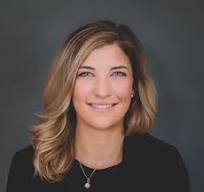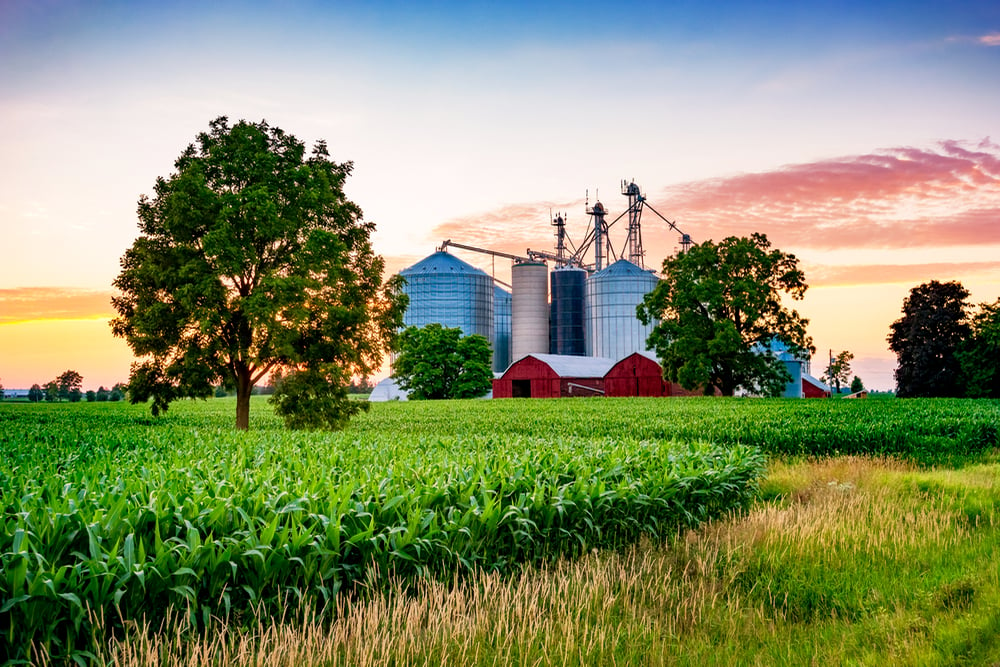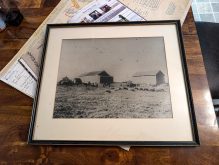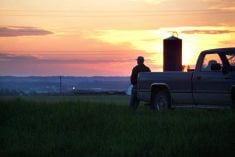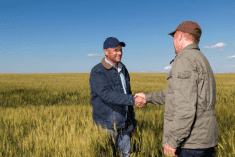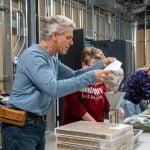Some people just fall into the world of agriculture — and consider themselves lucky to have stumbled into such a happening industry.
Kelsey Owen-Cooper is one of those people.
Owen-Cooper grew up in rural Ontario, surrounded by farm influences. Her grandparents grew up on farms, her father worked on a local dairy (frequent visits to his workplace sparked the idea that she wanted to work on a farm someday) and she married into agriculture.
Read Also
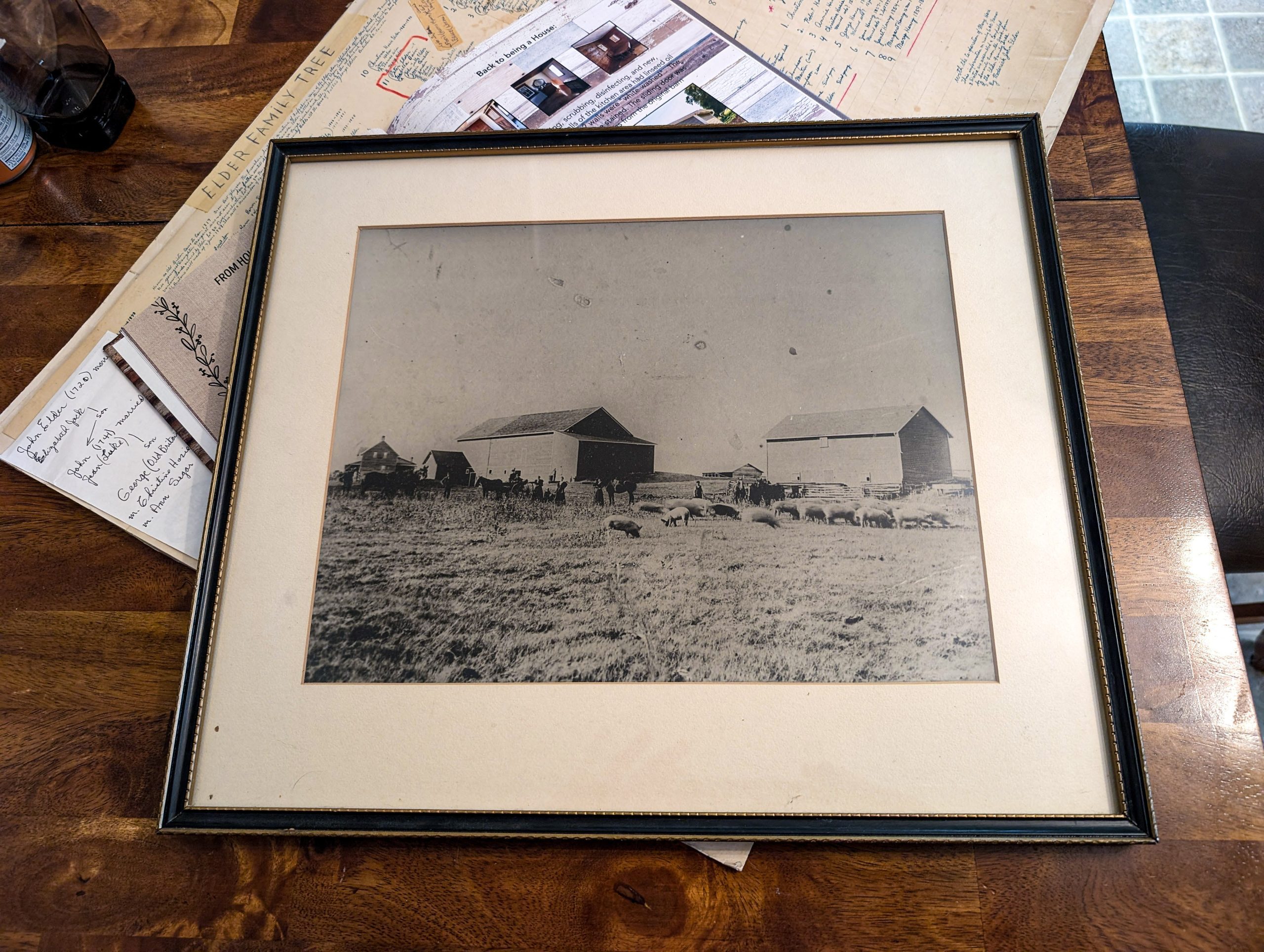
Why you should preserve your farm’s history
There was a big cast iron dinner bell in the middle of the farmyard where Maggie Van Camp grew up….
It was when she was working on her husband’s farm that she realized she loved agriculture and wanted to make it part of her career. So, she headed for Ridgetown Ag College and is now the co-production manager at Cooper’s CSA* where she handles beef and pork processing, sales and marketing.
Alongside farm work she also runs a marketing, content creation and consulting business for agriculture and small businesses. As a creative person she loves using her knowledge and experience — as well as the perspective of someone who didn’t grow up on a farm — to help tell farmers’ stories and bridge the gap between producers and the public.
“It’s been a journey I never could have imagined 10 years ago — and the doors just keep opening,” she says.
As an up-and-comer in Canada’s ag industry — one who is passionate, dedicated and working to ensure the industry’s success and sustainability — I wondered what she thought about her generation’s involvement in agriculture and what they think we should do better.
Danielle Ranger for Country Guide: Today’s workforce includes the most generations ever (five) at one time with millennials in the middle. What unique advantages does that cohort have?
Kelsey Owen-Cooper: Honestly, seeing “millennials” and “unique advantages” in the same sentence is a bit of a trip. Usually, we’re getting roasted for killing industries or eating too much avocado toast. I’m right on that cusp, basically a Gen Z in a millennial’s birth year (call me a zillennial), so my jaded side wants to roll its eyes.
But the truth is, I think we do bring a lot to the table. We’re wildly adaptable — we’ve lived through more global curveballs than we can count, so shifting gears is basically our baseline operating mode.
We also grew up as tech was exploding, so we not only understand it, we’re eager to use it, whether that’s modernizing farm practices, improving efficiency or telling our story online. Speaking of which, our social media presence is huge.
We care about transparency, showing consumers where their food comes from and pushing back against lazy corporate marketing that tries to pin environmental blame on farmers while they skate by. And let’s be real: we’re hilarious. Our dark sense of humor gets us through the chaos of farming and life.
Plus, we genuinely care. About the environment, about sustainability, about doing better. And we’re not afraid to question the way things have always been done if it means building a stronger future.
DR: What’s one tradition you think needs to be brought back or embraced more than it currently is?
Owen-Cooper: I’ve always sort of linked tradition with getting stuck in the past. But after mulling it over, I realized there’s one “tradition” we could stand to revive in agriculture: the tradition of not totally walling ourselves off from the rest of the world.
It’s so tempting, isn’t it? In rural life — especially in Canadian ag, where we’re such a tiny slice of the population pie — it’s easy to just hunker down with people who think like us, value the same things and gripe about the same issues.
And hey, I get it. Sometimes the rest of the world is … a lot. People can suck, especially when their values clash hard with yours.
But here’s the kicker: for all our talk about city folks being “disconnected”, sometimes we’re the ones who are out of touch. We’re such a small minority, yet we can get weirdly defensive about our way of life instead of inviting others in or learning from them.
So, if I could champion any tradition, it would be the practice of keeping the door open — of staying curious, connecting beyond our comfort zone and letting fresh perspectives in. Not because we need to abandon our rural roots, but because engaging with the bigger world actually makes us stronger … and a lot less cranky.
DR: What’s one tradition or mindset that needs to die?
Owen-Cooper: One mindset that absolutely needs to die — or at the very least get a serious overhaul — is this idea that the farm has to keep going no matter what, even if it means destroying your family or alienating your workers in the process.
I’d rather sell the farm than sacrifice my relationships. Period. And that’s not me talking with my head stuck somewhere dark. I’ve had some tough, heartfelt conversations with my own family about this. I’ve watched the air go out of them when I say it. Because for them, who’ve poured their entire lives into the farm, the idea that the next generation might just walk away feels like all their pain and sacrifice was for nothing.
But here’s the thing: that exact mindset is why so many family farms are simmering pots of resentment. It’s the root cause behind family members who can’t stand each other, who bring their bitterness to the dinner table — or worse, project it onto employees.
I’ve had countless shop talks with friends in ag who all have the same stories, and it’s heartbreaking. In my eyes, if parents and owners prioritized healthy relationships over simply keeping the farm afloat “because it’s been in the family for nine generations”, so many of these problems would solve themselves. I grew up playing sports and captaining teams, and I learned early that when you lift up the people around you — when you care more about them than the scoreboard — the wins come anyway. And not just on the field, but in life. That’s a mindset agriculture desperately needs more of.
*CSA = community supported agriculture

